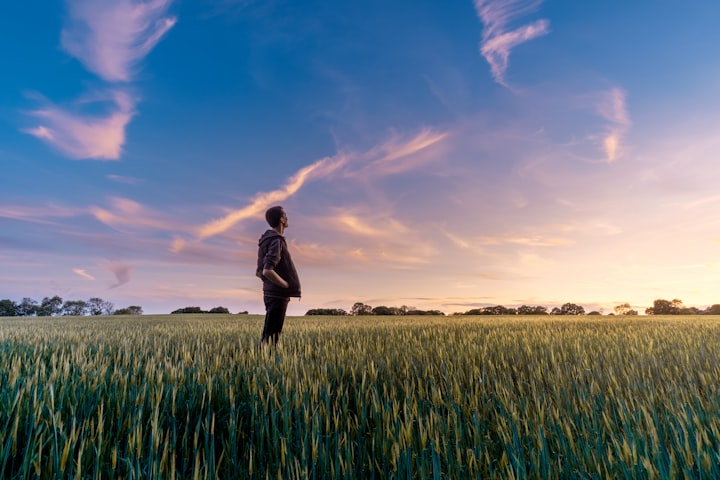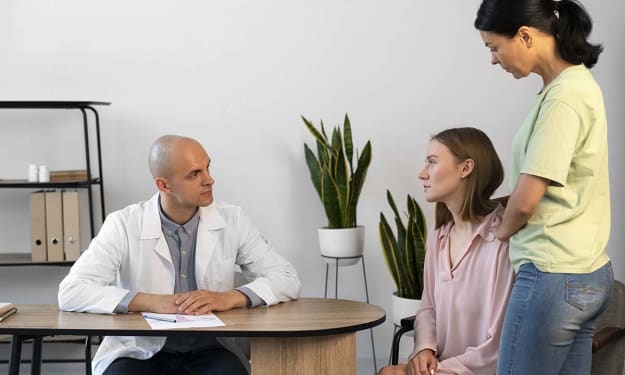Resisting the Urge To Overspend
Be a part of the future

Consumption and the capitalist dream. America loves it. I love it. The rise of dopamine when we press “place order” is doubled when we get another jolt of dopamine from a package at our front door a few days later. Almost as exciting as the feeling of getting a birthday present. Gift wrapped in a perfect box for our pleasure and enjoyment.
Shopping is so far ingrained into our culture, so a habit. Shopping is so ingrained we have to try not to do it. We are relentlessly bombarded by hundreds of prompts to buy products every day. It’s become a necessity. Shopping is literally critical to the success of America.
When COVID first hit the U.S. shores in 2020, the national shut down closed many businesses across the country. Almost immediately, the halt in shopping radically changed the landscape of businesses. When people stopped spending money, people lost their jobs. Without money being generated into the economy, many restaurants and small businesses were lost forever.
It’s in our collective interest to spend our income back into the economy. To grow and support our communities, even our small communities online. The dopamine rush of our wants and needs transferred into the idea of doing good. It’s never been easier to “add to cart.” Spending our money with the thrust of our thumb.
Amazon can deliver a package in less than two hours in many cities. Almost anything can be delivered to your door. The choices are endless. Literally anything your heart desires, from alcohol to ice cream. From the usual to the obscure.
Just press “place order” and it’s all yours. You don’t even need to be wearing pants.
How do we balance our wants and needs, and continue to grow our economy while making choices better for the environment. Hearing catch phrases like, “shop less,” and “sustainable,” implying the climate crisis is a survivable problem within the grasp of individual choices.
What does minimalism even mean? The privilege of the elite, or the desperate life of a refugee carrying all their possessions on their back. Having less isn’t always a conscious choice, or even a possible reality for most of the poor. So far, this approach hasn’t really worked, but to guilt the people who can afford to pay the premium price for being environmentally friendly.
Meanwhile we romanticize nomadic living. What appears as a simpler life, grounded in nature and away from the hustle of modern life as the answer to our plague. The dream whereas wanderlust is the reward for pounding the hamster wheel. Advertised as the cure for depression and anxiety, a commodity sold to the privileged few as a choice. The reality is not for the faint of heart.
As a culture we are not going to stop shopping. Once a modern convenience fully engages with our lifestyle, the results are always permanent. People want their lives to be easier, it’s human nature. Everyone loves getting new things.
The opposite isn’t necessarily better. I am not proposing a trip back in a time machine to Soviet Russia, or Mao’s China. A depletion of goods isn’t efficient, or sustainable for a large population of people. It’s not environmental, or prosperous.
But there are some quirky articles where you can research common life hacks from the Soviet era. If you enjoy social history as much as I do.
We live in a society far more isolated from each other, far more escaped from the burdens of so many more people. The truth is, though, it’s hard to talk about racial and social justice without also talking about environmental justice. No today, not anymore.
The textile industry is the second worst polluter in the world, behind oil. It employs one in six people in the world. Over a billion people, mostly non white, and only twenty percent make a living wage. The clothes we buy are certainly wrapped up in politics, race, poverty, worker’s rights and environmental problems. It’s all connected.
Most Americans are aware of the consequences of buying fast fashion, or refined sugar, or the MICA in almost all makeup. We are all guilty of contributing to the problem. I am guilty. I own IKEA furniture. I buy things made in places with questionable child labor laws. I am aware, and still can’t stop myself. Once an item’s origin becomes abstract, it’s harder to contemplate the urgency of it’s removal. It just appears, as if by magic, and magic never hurt anyone.
It’s so easy to press “place order,” to justify the purchase. I can tell myself it is only one purchase, two purchases. I am just one small person, and my new sandals, or new sweatshirt are not going to change anything. Removing the manufacturing process to a place farther away than our backyard changed our perception of it. We don’t have to consider the people behind its making, or their working conditions, or anything about them.
Our intentions are good, but the idea of mass change feels extravagant, abstract, and complicated. Beyond our individual capabilities. We care about the world, we recycle, and compost. We care about the environment, but the idea of real change is so huge an undertaking it feels insurmountable to just one person.
We are in a climate crisis. A world order of saving ourselves. Not just our grandchildren, but us. We are already seeing climate refugees from South America, and from the Middle East. A weak jet stream dipped freezing temperature in Texas. It isn’t as abstract as we believe. It is here, and it is now.
Right now.
Habits are hard. Stopping the destruction of our planet is a massive work of ideas from all parts of the world. It’s not just recycling, or bringing your own bags to the grocery store. It will change how we work, how we commute, how we get around, how we socialize, what we buy, how we make things, how we live, and what we eat. It encompasses every part of our lives.
We don’t have to go it alone. The myth of individual responsibility for the climate crisis is a lie. Environmental justice isn’t an individual endeavor brought about by buying organic. It’s a connected issue solved through collective action. An honest effort to work together.
Realistic climate change means acknowledging the need to keep shopping. We aren’t going to suddenly stop thinking about our needs and wants. It would, though, fundamentally change the way we shop and what we buy. Clicking less on “add to cart,” doesn't mean depriving ourselves, or never spending money on things we want. It means thinking about those choices, very carefully, and using collective action to demand change.
If more of us asked where our products were produced, and the working conditions of the workers. If all of us asked these questions, it would force the industry to change its standard to appease the consumer. We just have to ask them, and use our privilege to be allies of a system of change. The people have the power, not the companies prioritizing profit over its workers.
By one we are small, insignificant. By many we are big, and powerful.
The truth is, it also asks us to smartly consider whether an item online is worth the purchase. Whether the car trip is essential, or the food necessary. There is a time and place for climate change that asks the consumer to really think about the things they are buying. To think about the ways we live.
It would be false for me to pretend the climate crisis doesn’t owe some part of its solution to buying less, using less, and making less trash. It’s also a part of collective action. Something everyone can do.
I love to “add to cart.” I’m not going to stop shopping, but I want to be a part of the future. A future that doesn’t destroy, exploit, hurt, or annihilate the natural world, or the people working within it.
The best thing about “add to cart,” is there are so many small online companies doing it right now. It’s never been easier to find the things we want and need producing goods with fair labor practices, at fair and transparent prices.
Putting our money into the economy by supporting these companies, who in turn put the money back into the economy to make more goods. It’s a win-win for everyone. Shopping isn’t the enemy, but some things must change.
How we start to change our habits is hard, but totally possible. How we shop, and fight together for a better environment starts with small changes. A desire for change is the first part of the process. Thinking about our actions is a slow, but arduous and necessary next step.
The next time you press “shop now,” on Instagram, try to ride out the craving for dopamine. The dopamine rush flooding our brain when we “add to cart,” is as passing as the wind. It’s a chemical urgency for the pleasure of purchase. Just like any addiction, the crave to buy only lasts about fifteen minutes.
The next time your emotions are wild in an online store, take a minute to research the company, read reviews, or take a shower. Do something else for fifteen minutes. Usually the desire to buy goes away.
Limiting the amount we buy gives us more capital to invest in the things we need. It gives us more control over our lives, less a feeling of hopelessness that can spin a cycle of shopping. It gives us personal agency to buy the things changing the world for good. One small step at a time.
Join the discussion for collective action.
About the Creator
joy ellen sauter
Joy lives in Seattle, Washington, but is a native east coaster. She has kids and dogs- all adopted through foster care. She writes about mental health, history, pop culture, foster care, trauma, human rights, and parenting.






Comments
There are no comments for this story
Be the first to respond and start the conversation.